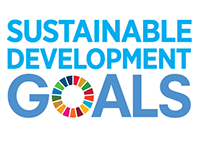Median Census Family Income
Definition:
Median income of census families (after-tax)
Methods and Limitations:
Family after-tax income is the sum of the after-tax incomes of all members of the census family. A detailed definition of after-tax income is available from the Family data – User Guide.
Census families are comprised of: 1) couples (married or common-law, including same-sex couples) living in the same dwelling with or without children, and 2) single parents (male or female) living with one or more children. Persons who are not matched to a family become persons not in census families. They may be living alone, with a family to whom they are related, with a family to whom they are unrelated or with other persons not in census families.
Median is the middle number in a group of numbers. Where a median income, for example, is given as $26,000, it means that exactly half of the incomes reported are greater than or equal to $26,000, and that the other half is less than or equal to the median amount. For this family-based table, zero values are included in the calculation of medians.
Source:
Statistics Canada. Table 11-10-0017-01 Census families by family type and family composition including before and after-tax median income of the family

 Median Census Family Income in the Sustainable Development Goals
Median Census Family Income in the Sustainable Development Goals
Click on the SDG to reveal more information
1. End poverty in all its forms everywhere
Extreme poverty rates have been cut by more than half since 1990. While this is a remarkable achievement, one in five people in developing regions still live on less than $1.90 a day, and there are millions more who make little more than this daily amount, plus many people risk slipping back into poverty.
Poverty is more than the lack of income and resources to ensure a sustainable livelihood. Its manifestations include hunger and malnutrition, limited access to education and other basic services, social discrimination and exclusion as well as the lack of participation in decision-making. Economic growth must be inclusive to provide sustainable jobs and promote equality.

